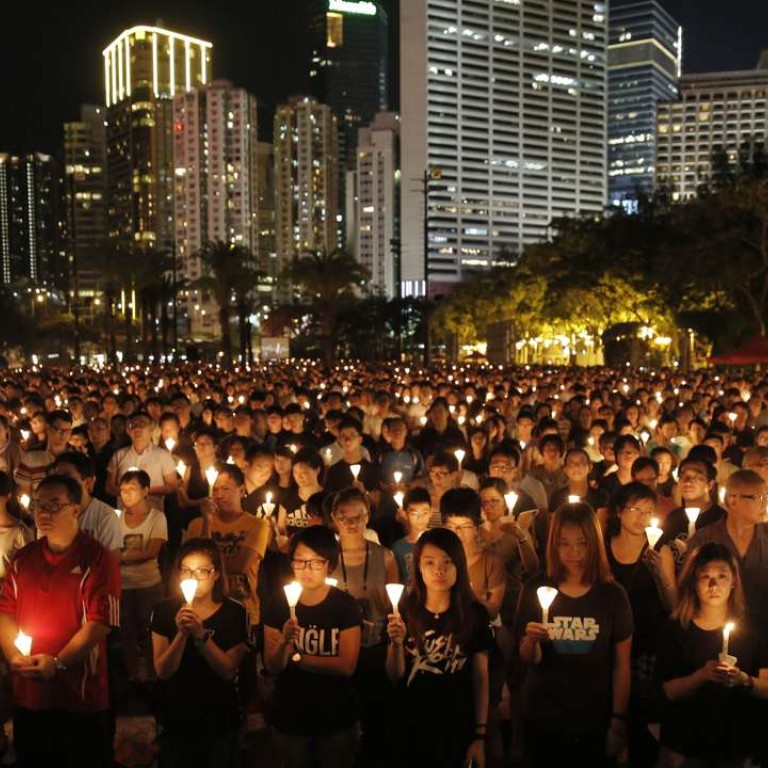
Hong Kong’s student leaders must understand the world beyond Facebook
Gary Cheung says no true consensus can be reached for the benefit of Hong Kong if our new-generation leaders hear only from their like-minded friends
Ghonim helped touch off the Arab spring in his country by setting up a Facebook page that inspired the massive demonstrations in Cairo in January 2011. The protests brought down president Hosni Mubarak the following month.
But he lamented during the seminar that the post-revolution events were like “a punch in the gut”. “The euphoria faded, we failed to build consensus, and the political struggle led to intense polarisation. Social media only amplified that state, by facilitating the spread of misinformation and hate speech,” Ghonim said. “We create our own echo chambers. We tend to only communicate with people whom we agree with. It became really hard to change our opinions.”
Truth and lies echo around Hong Kong, leaving a deeply divided society
In the digital age, many Hongkongers, particularly internet-savvy young people, are creating and living in their own echo chambers. On an RTHK programme on June 4, Chinese University student union president Ernie Chow Shue-fung said there should be “insulation” between Hong Kong and the mainland. In the heated exchange that followed, former student leader Andrew To Kwan-hang criticised Chow’s view, saying it was no different from the Communist Party warning Hongkongers against “interfering” in mainland affairs in the wake of the 1989 Tiananmen Square crackdown.

‘No bottom line’: new Chinese University student leaders say they will resort to violence if majority want it
“Would you stop eating simply because the Communists are eating?” Chow retorted. On the same day, like-minded internet users posted messages on Chow’s Facebook page, including “To has a problem with his intelligence” and “To was pointless”. To was one of the Hong Kong student leaders who delivered money and daily necessities to those protesting for democratic reform in Beijing in 1989.
In the digital age, many Hongkongers are creating and living in their own echo chambers
Why Hong Kong’s student leaders are abandoning June 4 vigil

Postmortems: two Hong Kong groups to release studies on 2014 Occupy protests
Student leaders failed to adhere to a prior understanding of giving a “mixed response” to the proposals, that is, not rejecting them outright while maintaining they would not fully meet their expectations. Instead, they lashed out at the government when they spoke to protesters that night. Professor Joseph Chan Cho-wai, a political scientist and one of the middlemen involved in bringing the two sides together, said student leaders were mindful of internet users on Facebook. On their way from the venue of the talks to the “occupation zone” in Admiralty, they became emboldened by the posts – which praised their performance during the talks – and then criticised the government with no holds barred.
If we choose to live in our own echo chamber, we will struggle to reach a consensus on matters affecting the city’s future, and move forward.
Gary Cheung is the Post’s political editor

